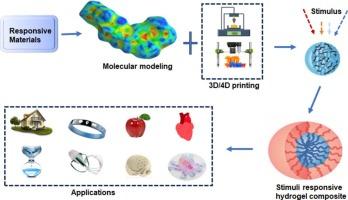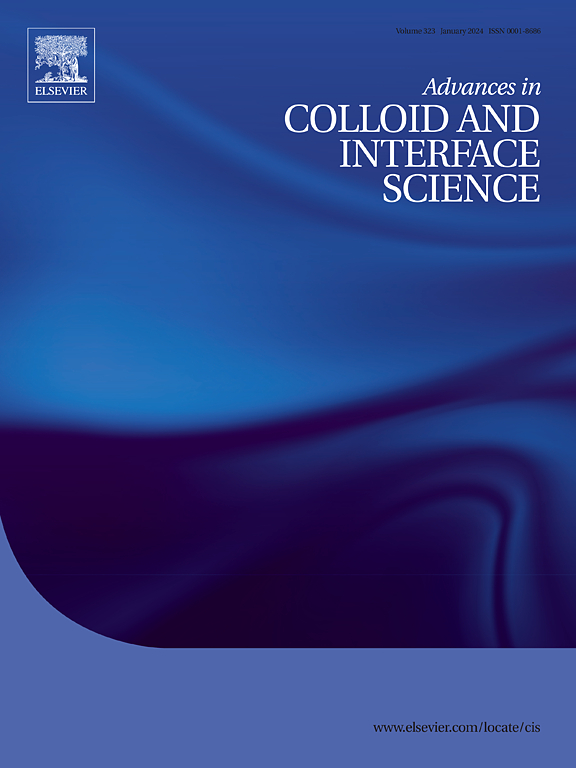The application of machine learning in 3D/4D printed stimuli-responsive hydrogels
IF 15.9
1区 化学
Q1 CHEMISTRY, PHYSICAL
引用次数: 0
Abstract
The integration of machine learning (ML) in materials fabrication has seen significant advancements in recent scientific innovations, particularly in the realm of 3D/4D printing. ML algorithms are crucial in optimizing the selection, design, functionalization, and high-throughput manufacturing of materials. Meanwhile, 3D/4D printing with responsive material components has increased the vast design flexibility for printed hydrogel composite materials with stimuli responsiveness. This review focuses on the significant developments in using ML in 3D/4D printing to create hydrogel composites that respond to stimuli. It discusses the molecular designs, theoretical calculations, and simulations underpinning these materials and explores the prospects of such technologies and materials. This innovative technological advancement will offer new design and fabrication opportunities in biosensors, mechatronics, flexible electronics, wearable devices, and intelligent biomedical devices. It also provides advantages such as rapid prototyping, cost-effectiveness, and minimal material wastage.

机器学习在3D/4D打印刺激响应水凝胶中的应用
机器学习(ML)在材料制造中的集成在最近的科学创新中取得了重大进展,特别是在3D/4D打印领域。机器学习算法在优化材料的选择、设计、功能化和高通量制造方面至关重要。同时,具有响应材料组件的3D/4D打印增加了具有刺激响应性的打印水凝胶复合材料的巨大设计灵活性。本文重点介绍了在3D/4D打印中使用ML来创建响应刺激的水凝胶复合材料的重大进展。它讨论了分子设计、理论计算和模拟支撑这些材料,并探讨了这些技术和材料的前景。这种创新的技术进步将为生物传感器、机电一体化、柔性电子、可穿戴设备和智能生物医学设备提供新的设计和制造机会。它还提供了诸如快速原型、成本效益和最小材料浪费等优点。
本文章由计算机程序翻译,如有差异,请以英文原文为准。
求助全文
约1分钟内获得全文
求助全文
来源期刊
CiteScore
28.50
自引率
2.60%
发文量
175
审稿时长
31 days
期刊介绍:
"Advances in Colloid and Interface Science" is an international journal that focuses on experimental and theoretical developments in interfacial and colloidal phenomena. The journal covers a wide range of disciplines including biology, chemistry, physics, and technology.
The journal accepts review articles on any topic within the scope of colloid and interface science. These articles should provide an in-depth analysis of the subject matter, offering a critical review of the current state of the field. The author's informed opinion on the topic should also be included. The manuscript should compare and contrast ideas found in the reviewed literature and address the limitations of these ideas.
Typically, the articles published in this journal are written by recognized experts in the field.

 求助内容:
求助内容: 应助结果提醒方式:
应助结果提醒方式:


